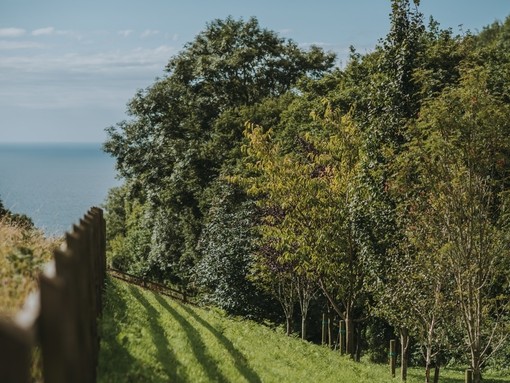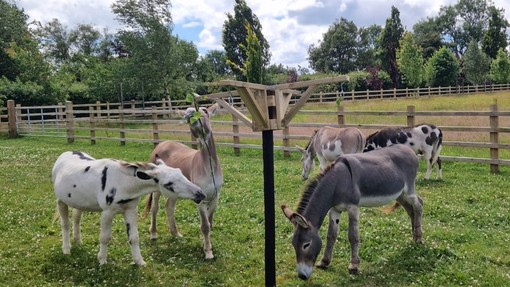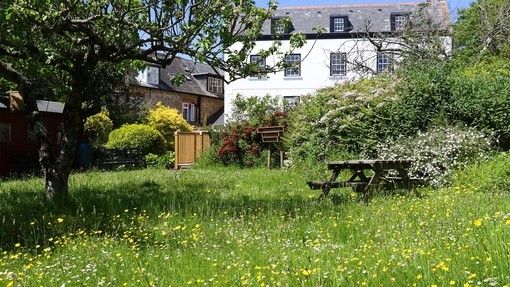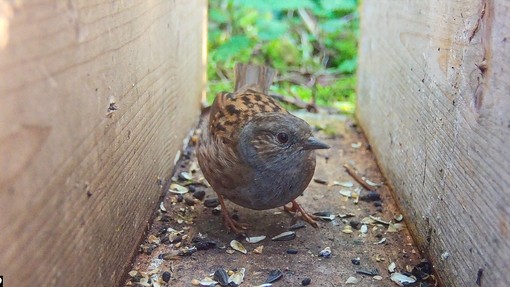
Our work
Our team of ecologists work across the sanctuary’s sites to support our commitment to improve biodiversity and manage our land sustainably for the benefit of our donkeys, people and environment.
We occupy over 1,200 acres of farmland in Devon and Dorset, with much of it falling within the rolling hills of the East Devon National Landscape. This land provides our resident donkeys with summer grazing pastures and haylage for the winter, as well as supporting wildlife and their habitats.
We are exploring ways in which we can integrate the health and wellbeing of donkeys, people and the natural environment on sanctuary land. We want to enrich our donkeys’ lives and improve their welfare, safeguard the longevity and quality of our wildlife habitats and increase biodiversity, and give people the opportunity to connect with donkeys and nature.
This work is led by our ecology and conservation team through sustainable and regenerative land management, habitat restoration and enhancement, species monitoring and a conservation volunteer programme.
Work includes creating species-rich grassland, planting trees and restoring hedgerows – all of which provides healthy habitats for both wildlife and donkeys.
Donkeys use trees and hedges for shade and shelter, and benefit both nutritionally and behaviourally from opportunities to forage on species-rich pasture and browse on trees and woody vegetation. In turn, donkeys can increase grassland diversity and have a positive impact on their environment and their wildlife neighbours.
Wildlife surveys and habitat monitoring show that our woodlands, ponds, hedgebanks and grassland are home to dormice, birds, bats, butterflies, rare and wonderful types of funghi and waxcaps, as well as an array of invertebrates above and below ground.
The work of the team and volunteers is helping to ensure the sanctuary provides a healthy and resilient environment for donkeys, people and wildlife for now and the future.
Get involved
Your contribution will help us to enhance the biodiversity of our farms, and improve the landscape for generations of donkeys and visitors to come.
The conservation volunteer programme is run across our sites to carry out tasks such as hedge laying and planting, woodland management, grassland restoration and species monitoring. If you would like to donate your time and energy to help us with this work, we would love to see you.
Keen to help improve habitats for our donkeys and wildlife?
Our volunteers work
Volunteers from an armed forces veterans’ group have helped provide enrichment opportunities for the four-legged residents at our Sidmouth sanctuary.

This May, parts of our Sidmouth sanctuary will once again be left unmown as part of this year’s No Mow May initiative, allowing plants to burst into life and give pollinators a boost ahead of the summer.

A scheme to help re-establish an apple orchard at one of our Devon farms has really taken root this week with the planting of 16 new apple trees.

The United Nations’ World Wildlife Day is a celebration of the world’s wild fauna and flora, and this year’s theme – ‘Connecting People and Planet: Exploring Digital Innovation in Wildlife Conservation’ – is the perfect opportunity to explore how our Ecology and Conservation team are embracing technology to help paint a clearer picture of the health of our sanctuary environments.

Our Ecology and Conservation team and their volunteers have been using centuries-old methods of managing hedges to help improve the environment for native wildlife and create effective windbreaks and enrichment features for our resident Sidmouth donkeys.

At The Donkey Sanctuary, we recognise the importance of improving the quality and structure of our soil. Not only does this support a robust ecosystem, but healthy soil also helps create the best environment for our resident herds.




